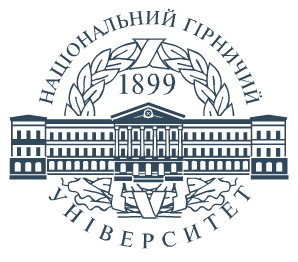|
|
Types of action � Research and innovation actions Description:� Action primarily consisting of activities aiming to establish new knowledge and/or to explore the feasibility of a new or improved technology, product, process, service or solution. For this purpose they may include basic and applied research, technology development and integration, testing and validation on a small-scale prototype in a laboratory or simulated environment. Projects may contain closely connected but limited demonstration or pilot activities aiming to show technical feasibility in a near to operational environment. Funding rate: 100%. � Innovation actions Description: Action primarily consisting of activities directly aiming at producing plans and arrangements or designs for new, altered or improved products, processes or services. For this purpose they may include prototyping, testing, demonstrating, piloting, large-scale product validation and market replication. A �demonstration or pilot� aims to validate the technical and economic viability of a new or improved technology, product, process, service or solution in an operational (or near to operational) environment, whether industrial or otherwise, involving where appropriate a larger scale prototype or demonstrator. A �market replication� aims to support the first application/deployment in the market of an innovation that has already been demonstrated but not yet applied/deployed in the market due to market failures/barriers to uptake. 'Market replication' does not cover multiple applications in the market of an innovation that has already been applied successfully once in the market. �First� means new at least to Europe or new at least to the application sector in question. Often such projects involve a validation of technical and economic performance at system level in real life operating conditions provided by the market. Projects may include limited research and development activities. Funding rate: 70% (except for non-profit legal entities, where a rate of 100% applies). � Coordination and support actions Description: Actions consisting primarily of accompanying measures such as standardisation, dissemination, awareness-raising and communication, networking, coordination or support services, policy dialogues and mutual learning exercises and studies, including design studies for new infrastructure and may also include complementary activities of� strategic planning, networking and coordination between programmes in different countries. Funding rate: 100%. � SME instrument Description:� The SME instrument is targeted at all types of innovative SMEs showing a strong ambition to develop, grow and internationalise. It provides staged support covering the whole innovation cycle in three phases complemented by a mentoring and coaching service. Transition from one phase to the next will be seamless provided the SME project proves to be worth further support in a further evaluation. Each phase is open to new entrants. � a)� SME instrument (phase 1) Description:� Feasibility study verifying the technological/practical as well as economic viability of an innovation idea/concept with considerable novelty to the industry sector in which it is presented (new products, processes, design, services and technologies or new market applications of existing technologies). Funding rate: Funding will be provided in the form of a lump sum of EUR 50,000. � b) SME instrument (phase 2) Description:� innovation projects that address a specific challenge and demonstrate high potential in terms of company competitiveness and growth underpinned by a strategic business plan. Funding rate: 70% (exceptionally, 100% where the research component is strongly present). The single applicable rate is specified under the relevant topic. � c) SME instrument (phase 3) Description:� Support to commercialisation promotes the wider implementation of innovative solutions and customers and supports financing of growth by facilitating access to public and private risk capital. This stage will not provide for direct funding, but SMEs can benefit from indirect support measures and services as well as access to the financial facilities supported under Horizon 2020. � ERA-NET Cofund Description:� ERA-NET Cofund under Horizon 2020 is designed to support public-public partnerships, including joint programming initiatives between Member States, in their preparation, establishment of networking structures, design, implementation and coordination of joint activities as well as Union topping-up of a trans-national call for proposals. It is based on the merger of the former ERA-NET and ERA-NET Plus actions and is implemented by using �programme co-fund actions�. It allows for programme collaboration in any part of the entire research-innovation cycle. � Funding rate:� The Union contribution will be limited to a maximum of 33% of the total eligible costs of the action. The Union contribution to the costs for support to or implementation of trans-national projects is limited to one call per grant agreement. � Pre-Commercial Procurement (PCP) Cofund actions Description:� PCP cofund actions aim to encourage public procurement of research, development and validation of new solutions that can bring significant quality and efficiency improvements in areas of public interest, whilst opening market opportunities for industry and researchers active in Europe. Funding rate: The Union contribution will be limited to maximum 70% of the total eligible costs. � Public Procurement of Innovative Solutions (PPI) Cofund actions Description: The objective of PPI cofund actions is to enable groups of procurers to share the risks of acting as early adopters of innovative solutions, whilst opening market opportunities for industry. Funding rate: The Union contribution will be limited to a maximum 20% of the total eligible costs. � |




 �������� ̲��������� ��²����-�������� �������
�������� ̲��������� ��²����-�������� �������